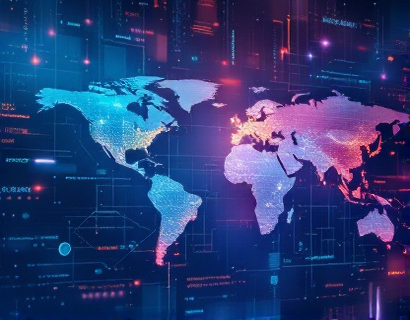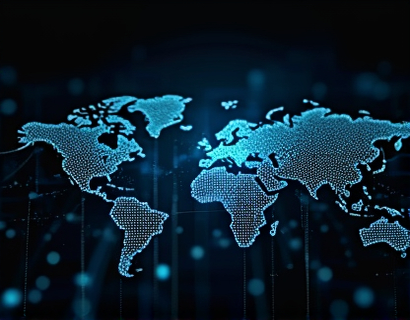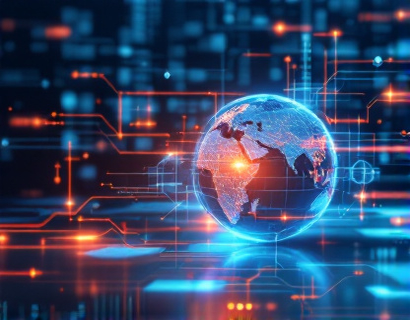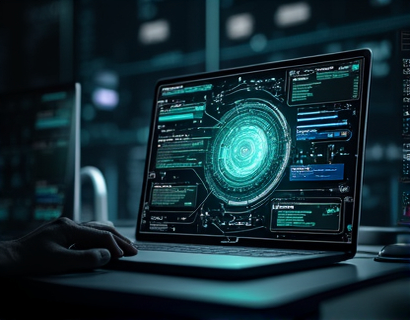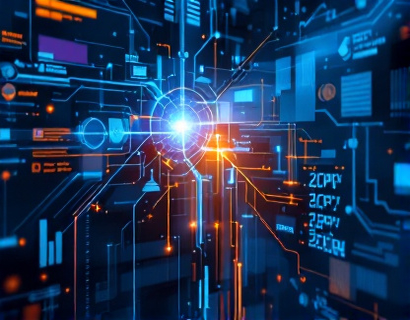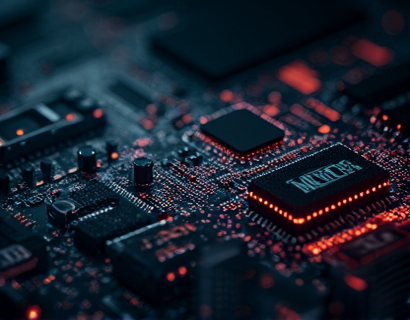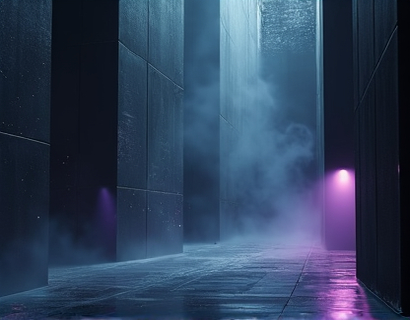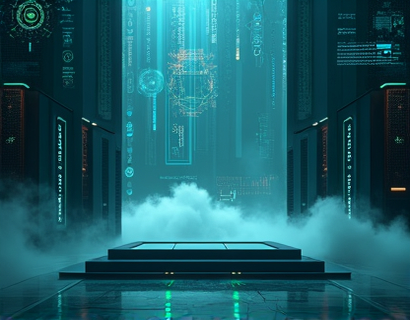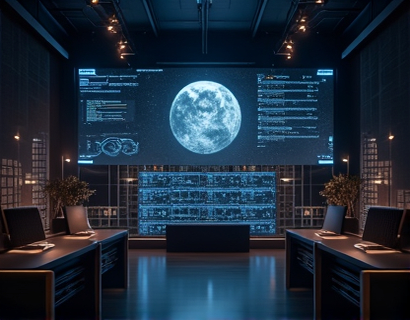Revolutionizing Memorial Creation: The Intersection of AI and Blockchain Technology
The concept of memorializing loved ones has evolved significantly over the years, from traditional stone markers to digital tributes. In the age of advanced technology, the creation of memorials is undergoing a transformative shift, thanks to the integration of Artificial Intelligence (AI) and Blockchain technology. This fusion not only enhances the security and personalization of tributes but also ensures that the memories of the departed are preserved in a meaningful and lasting manner. This article delves into the future of memorial creation, exploring how a cutting-edge platform leverages AI and blockchain to craft secure, personalized tributes for the bereaved.
Understanding the Need for Innovative Memorial Solutions
The loss of a loved one is one of the most profound and painful experiences anyone can face. Traditional memorials, while meaningful, often lack the personal touch and technological sophistication that modern bereaved families seek. The need for innovative memorial solutions is driven by several factors, including the desire for secure storage of memories, the ability to personalize tributes, and the assurance of long-term preservation. AI and blockchain technology address these needs by providing robust, flexible, and user-friendly platforms for creating and managing digital memorials.
AI-Powered Personalization: Crafting Unique Tributes
AI technology plays a pivotal role in creating personalized memorials by analyzing and incorporating various data points to craft a tribute that truly reflects the life of the deceased. This includes gathering information from social media profiles, personal documents, and contributions from family and friends. AI algorithms can identify key themes, events, and sentiments, using this data to generate a comprehensive and nuanced tribute. For instance, AI can compile a timeline of significant life events, create a collage of photos, and even generate a personalized poem or letter, all tailored to the individual's unique story.
Moreover, AI can facilitate interactive elements within the memorial, such as virtual reality experiences or augmented reality features that allow visitors to explore meaningful locations or relive special moments. This level of personalization ensures that each memorial is a true reflection of the person it honors, providing comfort and solace to those who visit.
Blockchain Technology: Ensuring Security and Integrity
Blockchain technology is renowned for its security and transparency, making it an ideal solution for storing and managing digital memorials. By using a decentralized ledger, blockchain ensures that the data within a memorial is immutable and tamper-proof. This means that once a tribute is created and stored on the blockchain, it cannot be altered or deleted, providing a permanent and secure repository for memories.
Furthermore, blockchain's cryptographic features ensure that only authorized individuals can access the memorial, enhancing privacy and security. This is particularly important for sensitive information and personal memories that families wish to protect. The use of smart contracts can also automate certain aspects of memorial management, such as setting permissions, managing contributions, and even handling donations to charitable causes in memory of the deceased.
Combining AI and Blockchain for a Seamless Experience
The true power of this platform lies in the seamless integration of AI and blockchain technology. AI handles the creation and personalization of the memorial, while blockchain ensures the security and integrity of the data. This combination offers a comprehensive solution that addresses the multifaceted needs of bereaved families.
For example, when a user creates a memorial, the AI system gathers and processes data to generate a personalized tribute. This tribute is then stored on the blockchain, where it remains secure and accessible only to those with the necessary permissions. The platform can also provide tools for ongoing management, such as adding new memories, updating the tribute, and sharing it with others, all while maintaining the highest levels of security.
Benefits of AI and Blockchain-Powered Memorials
The integration of AI and blockchain in memorial creation offers numerous benefits, making it a compelling choice for those seeking to honor their loved ones.
Enhanced Personalization
AI-driven personalization ensures that each memorial is unique and deeply meaningful. By incorporating a wide range of data sources and creative elements, the platform can create a tribute that truly captures the essence of the deceased, providing a sense of closure and continuity for the bereaved.
Unmatched Security
Blockchain's inherent security features provide peace of mind, knowing that the memorial is safe from unauthorized access and data breaches. This is crucial for preserving the privacy and integrity of personal memories and sensitive information.
Long-Term Preservation
Digital memorials stored on the blockchain are designed to last indefinitely, free from the risks of data loss associated with traditional online storage solutions. This ensures that the memories and tributes created today will be accessible to future generations.
Community and Support
The platform can foster a community where bereaved individuals can find support and connection. Features such as forums, support groups, and shared tributes can help people cope with their loss and find comfort in shared experiences.
Case Studies and User Testimonials
To better understand the impact of AI and blockchain-powered memorials, let's explore a few hypothetical case studies and user testimonials.
A family lost their young son in a tragic accident. Using the platform, they created a digital memorial that included a timeline of his life, a photo gallery, and a virtual book of condolences. The AI generated a heartfelt letter that summarized his personality and achievements, providing a touching tribute for friends and family to read. The blockchain ensured that all these elements were securely stored and could only be accessed by authorized family members.
Another user, a widow, used the platform to create a memorial for her late husband. She appreciated the ability to add new memories and update the tribute over time. The platform's AI suggested personalized poems and quotes that resonated with her husband's life, adding a layer of depth to the memorial. She also valued the security features, knowing that her husband's memories were safe and would be preserved for her children to cherish in the future.
Technical Overview of the Platform
While the focus is on the benefits, it's important to understand the technical underpinnings of the platform.
The platform is built on a robust blockchain network, such as Ethereum or Hyperledger, which provides the necessary infrastructure for secure and decentralized data storage. The front-end is developed using modern web technologies, ensuring a user-friendly interface that is accessible on various devices.
AI algorithms are integrated using machine learning frameworks like TensorFlow or PyTorch. These algorithms process and analyze data from multiple sources, including social media, personal documents, and user inputs, to generate personalized content. The AI also handles natural language processing tasks, such as generating poetry or letters, using pre-trained models fine-tuned for this specific purpose.
Smart contracts are implemented to manage permissions and interactions within the platform. These contracts ensure that only authorized users can access and modify the memorial, while also facilitating features like charitable donations and community contributions.
Future Developments and Trends
The integration of AI and blockchain in memorial creation is just the beginning. Future developments may include advanced AI capabilities such as sentiment analysis to better understand and reflect the emotional tone of the deceased's life. Enhanced VR and AR technologies could further enrich the memorial experience, allowing visitors to engage in immersive and interactive ways.
Additionally, the platform could explore partnerships with funeral homes, religious institutions, and other relevant organizations to provide a more comprehensive suite of services. The incorporation of AI-driven chatbots could also offer 24/7 support and guidance to users as they create and manage their memorials.
Conclusion
The convergence of AI and blockchain technology is revolutionizing the way we create and preserve memorials. This innovative approach not only honors the memory of the deceased but also provides a secure, personalized, and meaningful experience for the bereaved. As technology continues to advance, the potential for even more sophisticated and empathetic memorial solutions is vast, ensuring that the legacy of loved ones lives on in the digital age.










